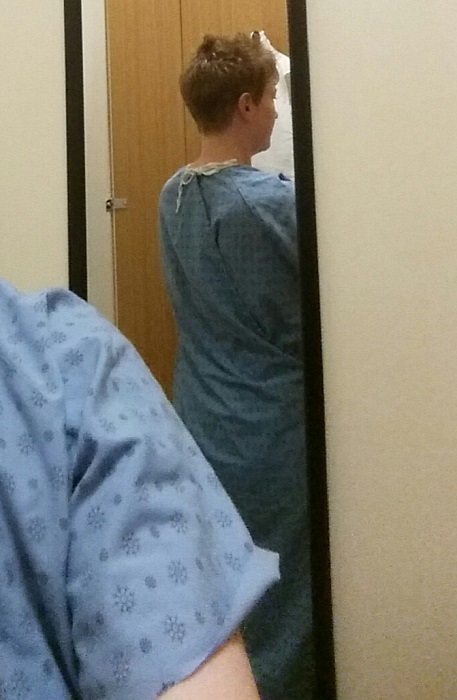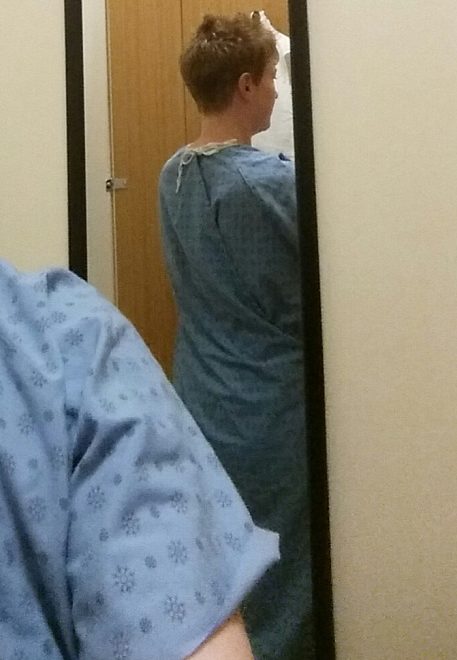In his new book, Brian Goldman, MD describes and dissects many terms used in clinical settings. These are terms that you may not have heard, within the realm of bioethics.
If his name seems familiar, it may be because Dr. Goldman has hosted the radio show White Coat, Black Art for the Canadian Broadcasting Company (CBC Radio) for the past seven years. Or perhaps you’ve seen or heard his 2010 TEDx talk, regarding medical errors.(1) You may also have seen him in his role as health reporter for The National, broadcast on CBC television.
The Secret Language of Doctors(2) was written primarily for patients and caregivers, but is well worth a read for those of us in bioethics. As you read this post, I’ll ask you to bear in mind Beauchamp and Childress’ four commonly accepted principles of bioethics(3):
- Respect for autonomy
- Nonmaleficence
- Beneficence
- Justice
While reading the secret language examples I’ve provided, from Dr. Goldman’s book and my own hospital experience, consider whether they fail to respect any of these principles of biomedical ethics.

Could it be argued that secretly referring to a patient in a derogatory manner, among clinicians, could semi-intentionally create a harm to the patient? A psychological or social harm?
Or are these expressions and terms simply examples of harmless M.A.S.H.-style gallows humour, used by many clinicians to deal with the stresses of their life-and-death roles?
Ask yourself whether the use of such secret derogatory terminology among clinicians risks damaging, or completely eroding, a patient’s trust; whether in their physician, in the healthcare centre, or in the sphere of medicine as a whole.
If you feel that this secret language fails to respect any of the principles of bioethics, or risks the loss of patients’ trust in healthcare or in medicine, then please speak up if you ever hear it being used.
Dr. Goldman renders intelligible to patients and caregivers the meanings behind these secret codes; many hospitalists’ special use of everyday terms.
A good example – of a common phrase being used among clinicians to convey a completely different meaning – is one I’ve often heard; frequent flyer. I’ll provide the decoding, or translation, of the term below – along with a few other examples from this book:
- Beemer = A patient with such a high body mass index, or BMI, that they’re considered to be morbidly obese
- Discharged up = Died
- High five = Indicates a patient with HIV; a play on words for HIV as hi-V
- Frequent flyer = A patient who repeatedly presents to a hospital’s emergency department/room (ER/ED) or other healthcare facility; they often lack any other access to medical care, so visit the ED/ER for minor issues
- Hollywood code = When medical staff pretend to perform cardiopulmonary resuscitation, usually to placate any of a patient’s caregivers or family members who’re present at the time
- Horrendoma = A particularly awful or horrible condition, clinical sign, or symptom
- Referred to outpatient pathology clinic = Died
- Yellow Submarine = An obese patient with cirrhosis
- Status dramaticus’ = An overly dramatic patient
And, of course, there are many apparently incomprehensible acronyms used in the same derogatory ways:
- FOOBA = Found on orthopedics barely alive; meant to be insulting to orthopedic surgeons, rather than to patients
- FTD = Failure to die; said of an elderly patient for whom the clinician views treatment as medically futile
- GOMER = Get out of my emergency room; of patients with chronic or incurable but medically uninteresting conditions
- LGFD = Looks good from door; refers to a clinician who fails to properly assess a patient (I’ve also heard this referred to as a fly-over, for a clinician’s failure to fully assess a frequent flyer)
I’ll close this post with a question (blame my background in philosophy!): If one of your loved ones were a patient, and you heard any of these terms being used about them – how would that make you feel?
Thanks for reading! I hope you found something to think about in today’s post ‘-)
References:
(1) Goldman, Brian. Doctors make mistakes. Can we talk about that? TEDx Toronto. 30 Sep 2010. Web: http://doctorbriangoldman.com/appearances/ted-talk-doctors-make-mistakes/#sthash.NujihNoh.dpbs
(2) Goldman, Brian. The Secret Language of Doctors. HarperCollins Publishers. 29 April 2014. ISBN: 9781443416016:
http://www.harpercollins.ca/9781443416016/the-secret-language-of-doctors
(3) Beauchamp, Tom & Childress, James. Principles of Biomedical Ethics, 7th Edition. Oxford University Press. 23 Oct 2012.
https://global.oup.com/academic/product/principles-of-biomedical-ethics-9780199924585?cc=ca&lang=en&

